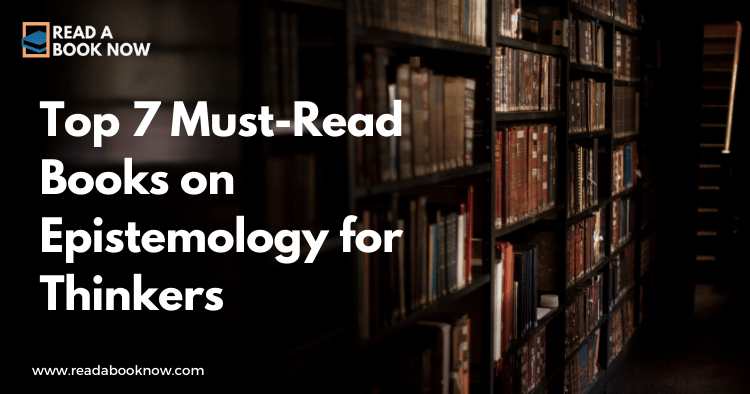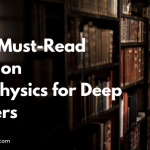Table of Contents
- Introduction
- 1. “Epistemology: A Contemporary Introduction to the Theory of Knowledge” by Robert Audi
- 2. “The Structure of Justification” by William P. Alston
- 3. “Knowledge and Its Limits” by Timothy Williamson
- 4. “The Problems of Philosophy” by Bertrand Russell
- 5. “An Introduction to Epistemology” by Jack S. Crumley II
- 6. “The Gettier Problem” by Edmund Gettier
- 7. “What Is This Thing Called Knowledge?” by Duncan Pritchard
- Conclusion
- FAQs
Introduction
Epistemology, the study of knowledge and belief, is a fascinating branch of philosophy that challenges us to think critically about how we know what we know. For thinkers, students, or anyone curious about the nature of knowledge, delving into this field can be incredibly rewarding. Whether you’re a seasoned philosopher or just starting your journey, these seven must-read books will provide you with a comprehensive understanding of epistemology.
1. “Epistemology: A Contemporary Introduction to the Theory of Knowledge” by Robert Audi
In this essential text, Robert Audi presents a thorough overview of epistemology, making it accessible for newcomers while still offering depth for more experienced readers. Audi examines various theories of knowledge, ranging from foundationalism to coherentism, and discusses the importance of justification. His clear writing style and structured approach make complex ideas understandable.
Key Takeaways:
- Introduction to key epistemological concepts.
- Insight into the relationship between belief, truth, and justification.
- Consideration of contemporary issues in epistemology.
Why Read It? This book is perfect for anyone wanting a solid foundation in epistemological theories.
Learn more about Robert Audi’s work here.
2. “The Structure of Justification” by William P. Alston
William P. Alston’s book is a deep dive into the nature of justification. Alston argues against the traditional views of epistemic justification and introduces a more nuanced perspective. He explores how our beliefs can be justified through different methods, like perception, memory, and testimony.
Key Takeaways:
- Critical examination of traditional epistemic justification.
- Exploration of various sources of knowledge.
- Insight into the implications of epistemic norms.
Why Read It? This book challenges readers to rethink what it means for a belief to be justified, making it a must-read for serious thinkers.
Discover more about Alston’s philosophy here.
3. “Knowledge and Its Limits” by Timothy Williamson
In “Knowledge and Its Limits,” Timothy Williamson breaks new ground by presenting a bold thesis: knowledge is not just a mental state but a fundamental concept that shapes our understanding of other epistemic concepts. Williamson critiques skepticism and defends a robust view of knowledge that emphasizes its centrality in epistemology.
Key Takeaways:
- A redefinition of knowledge and its significance.
- Critique of traditional epistemological approaches.
- Engagement with skeptical arguments.
Why Read It? Williamson’s provocative ideas challenge conventional wisdom, making this book a stimulating read.
Explore Timothy Williamson’s contributions to philosophy here.
4. “The Problems of Philosophy” by Bertrand Russell
Bertrand Russell’s classic work introduces readers to pivotal philosophical questions, including those related to knowledge and belief. He explores the nature of reality, the limits of human understanding, and the challenges of skepticism. Russell’s engaging style makes this book a great introduction to philosophical thought.
Key Takeaways:
- Overview of key philosophical problems, including knowledge.
- Discussion of skepticism and its implications.
- Clear articulation of complex ideas.
Why Read It? Russell’s work is timeless and offers foundational insights into epistemology, making it a great starting point for beginners.
Read more about Bertrand Russell’s philosophy here.
5. “An Introduction to Epistemology” by Jack S. Crumley II
Jack S. Crumley II provides a concise and comprehensive introduction to epistemology in this accessible text. He covers essential topics such as the nature of knowledge, skepticism, and the sources of knowledge. Crumley’s engaging writing style and clear explanations make complex ideas approachable.
Key Takeaways:
- Fundamental concepts of epistemology.
- Discussion of key figures and their contributions.
- Practical applications of epistemological theories.
Why Read It? Great for students and casual readers alike, this book is an excellent primer on epistemological concepts.
Find out more about Jack S. Crumley II’s work here.
6. “The Gettier Problem” by Edmund Gettier
Edmund Gettier’s short but influential paper revolutionized epistemology by presenting scenarios that challenge the traditional definition of knowledge as justified true belief. This work has sparked extensive debate and further research in the field, making it a crucial read for anyone interested in epistemology.
Key Takeaways:
- Introduction of the Gettier problem.
- Examination of the traditional tripartite definition of knowledge.
- Exploration of the implications for epistemology and philosophy.
Why Read It? Gettier’s work is essential for understanding contemporary discussions about knowledge and belief.
Learn more about the Gettier problem here.
7. “What Is This Thing Called Knowledge?” by Duncan Pritchard
In this engaging book, Duncan Pritchard addresses fundamental questions about knowledge in a way that is accessible to readers new to the topic. He covers the basics of epistemology, including various theories and problems, while encouraging readers to think critically about their own beliefs.
Key Takeaways:
- Clear explanations of key epistemological concepts.
- Discussion of contemporary issues in the field.
- Encouragement of critical thinking.
Why Read It? This book is an excellent entry point for anyone looking to explore epistemology without getting lost in jargon.
Explore Duncan Pritchard’s work here.
Conclusion
Exploring epistemology can be a rewarding intellectual journey that challenges your perspectives on knowledge, belief, and understanding. The books listed above offer valuable insights into this fascinating field, catering to both beginners and seasoned thinkers. Whether you’re looking to grasp the fundamentals or dive deeper into specific issues, these texts will guide you on your epistemological path.
FAQs
Q: What is epistemology?
A: Epistemology is the branch of philosophy concerned with the nature, sources, and limits of knowledge and belief.
Q: Why is epistemology important?
A: Epistemology helps us understand how we acquire knowledge, what justifies our beliefs, and how we can differentiate between true and false beliefs.
Q: Do I need a background in philosophy to understand these books?
A: While some books are more technical than others, most of the recommended readings are accessible to beginners and provide a solid grounding in epistemological concepts.
Q: How can I further explore epistemology?
A: Besides the recommended books, consider exploring online courses, lectures, and discussions on platforms like Coursera or academic websites like Stanford Encyclopedia of Philosophy.
Feel free to dive into these books and start exploring the fascinating world of epistemology today!
Also look for works on classical literature that provide insights into knowledge and belief, such as those discussed in the following articles:
- Top 10 Must-Read 17th Century Classics for Book Lovers
- Top 10 Must-Read 18th Century Classics
- 10 Timeless American Classics You Must Read Today




